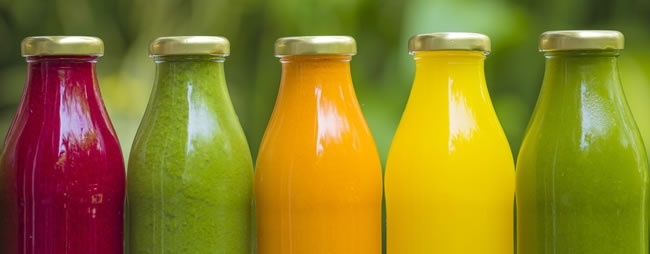6 Feb 2019
Swindon Old Town juice company takes on HMRC and won!

VAT will no longer be paid on juices sold as part of a programme by Devizes Road café The Core, after owner Kris Talikowski took HM Revenue and Customs to court.
At the London tax tribunal, solicitors hired by The Core's accountants argued that juices sold as part of the firm’s five-day programmes should be classed as meal replacements or food, rather than drinks which are subject to 20% VAT.
It means the same juices, such as celery-packed concoction the Green Goddess, will be subject to different tax levies depending upon whether they are sold over the counter or as part of a programme. HMRC has until later this month to appeal the tribunal decision.
The Core opened five years ago, with drinks sold over the counter and as part of four different week-long juicing programmes that see people take four different juices at set times in the day.
The business’s win could mean savings for customers at The Core. Mr Talikowski said: “The decision will mean that, after the appeal date has passed, we can look at either reducing our programme prices or finding new ways to reinvest the extra money in the business.”
“Fruit and vegetables are legally defined as “food” for obvious reasons, and I’ve felt since we opened in 2013 that juiced or blended fruit and vegetables should also be considered the same.” Mr Talikowski said.
“This is especially the case with our juice programmes because the intent of the consumption is a meal replacement programme and it is held out for sale as such.
“It was always our feeling that the juices and smoothies on our programme are not marketed as replacements for soft drinks or other beverages like pasteurised drinks, the fact they are raw, live, unpasteurised, contain five portions of juiced and blended fruit and veg and are consumed on the programmed to replace meals, is the reason we felt so strongly we had a good case.
“Products like Slimfast shakes and the new powered food supplement Huel are already considered food, so we felt in this category our programmes should also be considered the same. It’s taken three years and a lot of expense to get there, but it’s definitely worth it.”
An HMRC spokesman said: “We are carefully considering the outcome of this case.”
Tax rules need to keep pace with lifestyle change
VAT rules have not kept pace with lifestyle changes, writes our tax expert Steve Chamberlain.
When VAT was introduced in 1973, it adopted reliefs for things like food or children’s clothing from an earlier tax dating from the Second World War. The intention was to tax luxuries, not essentials. The rules have not kept pace with changes in our diets and lifestyles, and attempts to reform the law in 2012 – the so-called “pasty tax” – received widespread criticism.
It is not surprising that, as a result, similar products can have a different tax treatment. Further, several high-profile cases on the zero-rate for food come before the Courts every year. This month also saw a failed attempt by a national chain to have its grilled ciabatta rolls and breakfast muffins zero-rated.
It is to The Core’s credit that a local business, with a fraction of a national chain’s resources, has won its case. If HMRC do decide to lodge an Appeal, with a view to establishing a binding precedent case, it is hoped that Kris will be supported to fund his case.
Based on an article published by the Swindon Evening Advertiser.
To discuss this or anything else, please call Steve Chamberlain on 01793 818300 orsend him an email